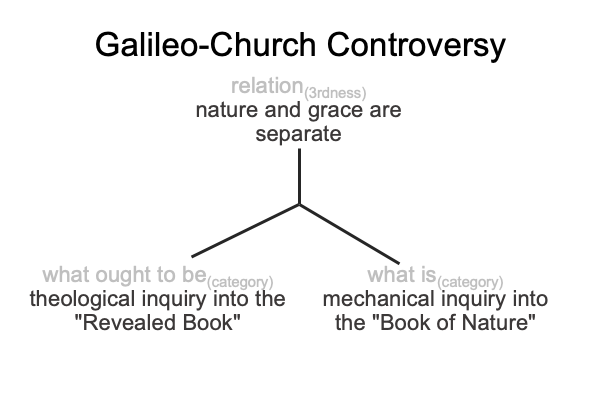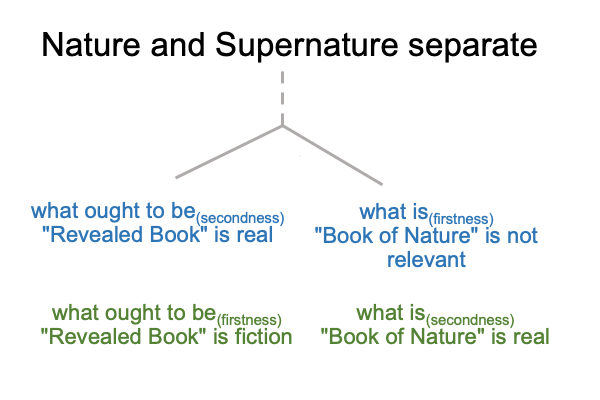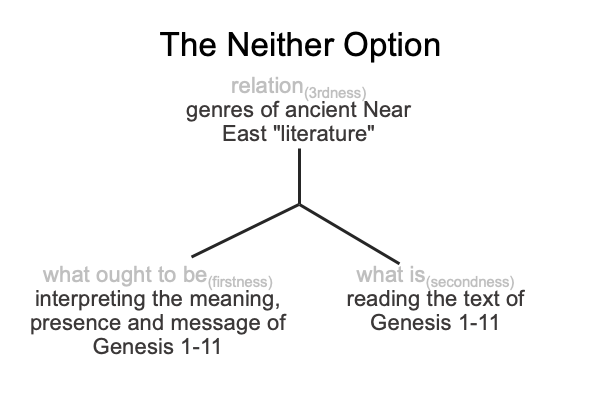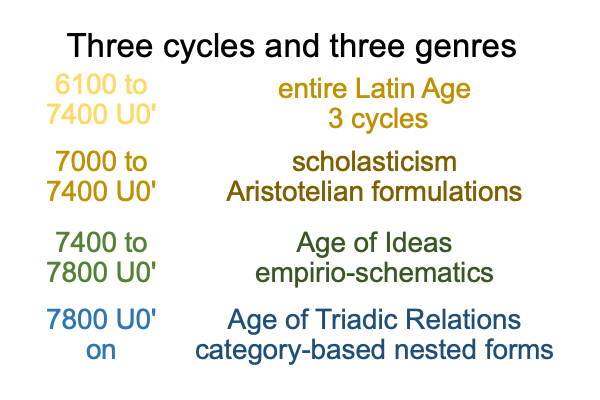Looking at the Book (2015) Genesis: History, Fiction or Neither? (Part 3 of 38)
0008 I now frame the controversy between Galileo and Catholic Church.
A judgment is a triadic relation with three elements: relation, what is and what ought to be. When each element is assigned to one of Peirce’s three categories, the judgment becomes actionable.
The three categories are thirdness, the triadic realm of normal contexts; secondness, the dyadic realm of actuality; and firstness, the monadic realm of possibilities.
Thirdness brings secondness, the dyadic realm of actuality, into relation with firstness, the monadic realm of possibilities.
0009 Here is a picture.
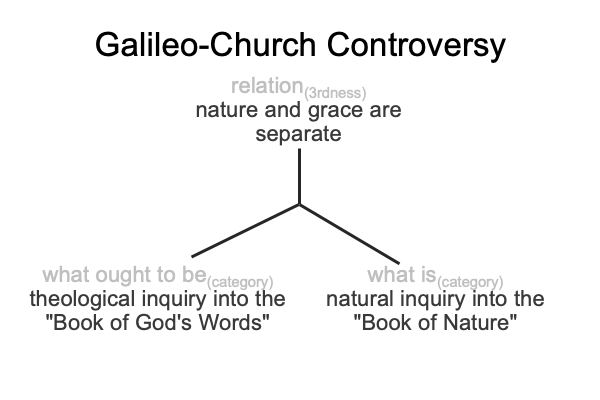
0010 This diagram of the triadic structure of judgment shows that a controversy can occur when both parties agree on a key relational principle. Here, both parties agree that nature and grace are distinct and separate.
This agreement serves as the relation that brings together what is and what ought to be.
The relation belongs to the category of thirdness, the realm of normal contexts, mediations, signs and so on.
0011 In the next blog, I will consider category-assignments to what ought to be and what is.

